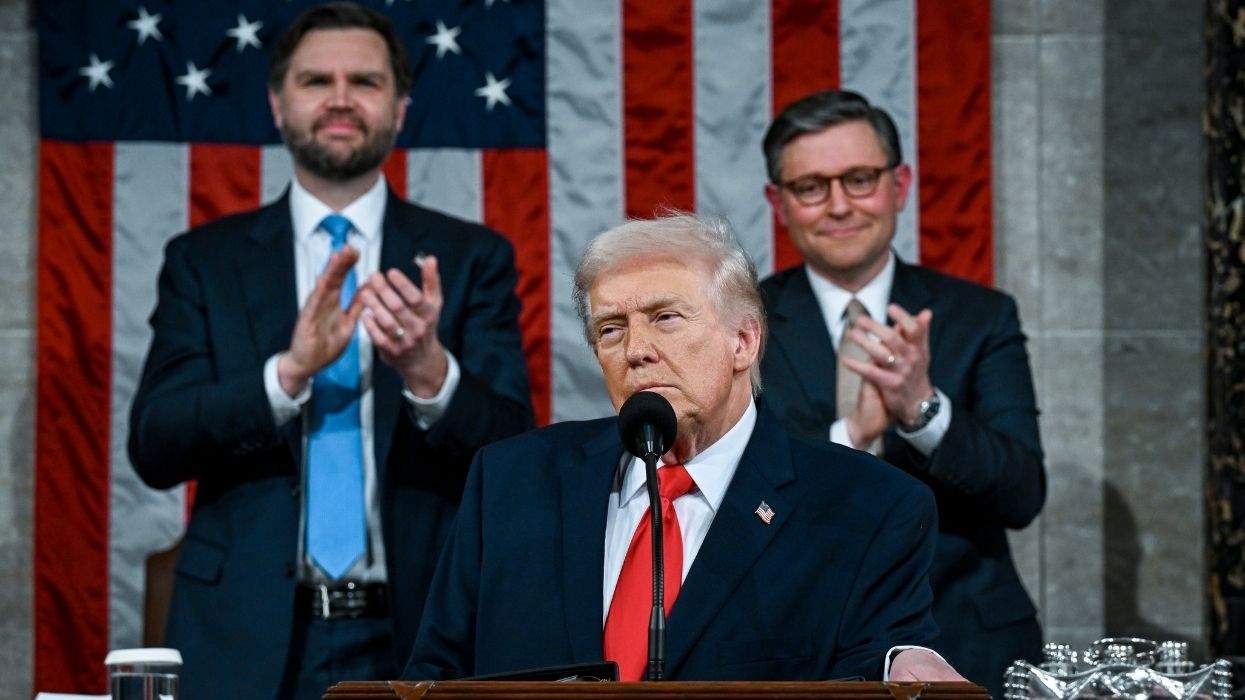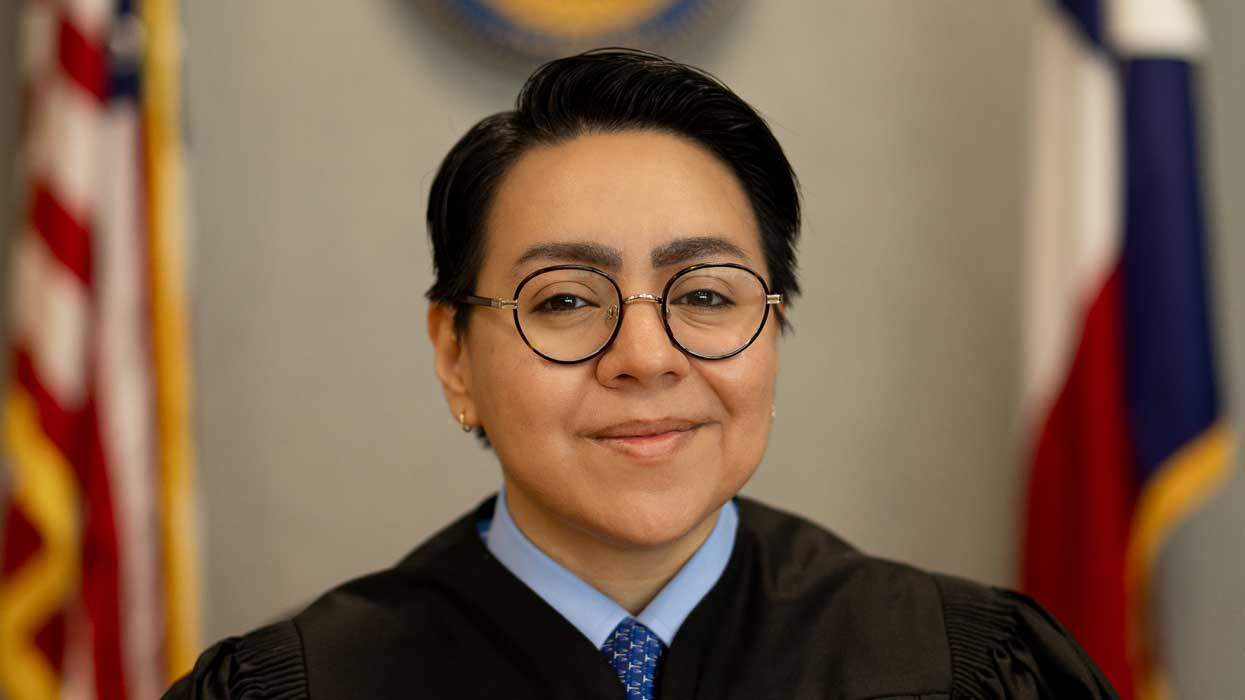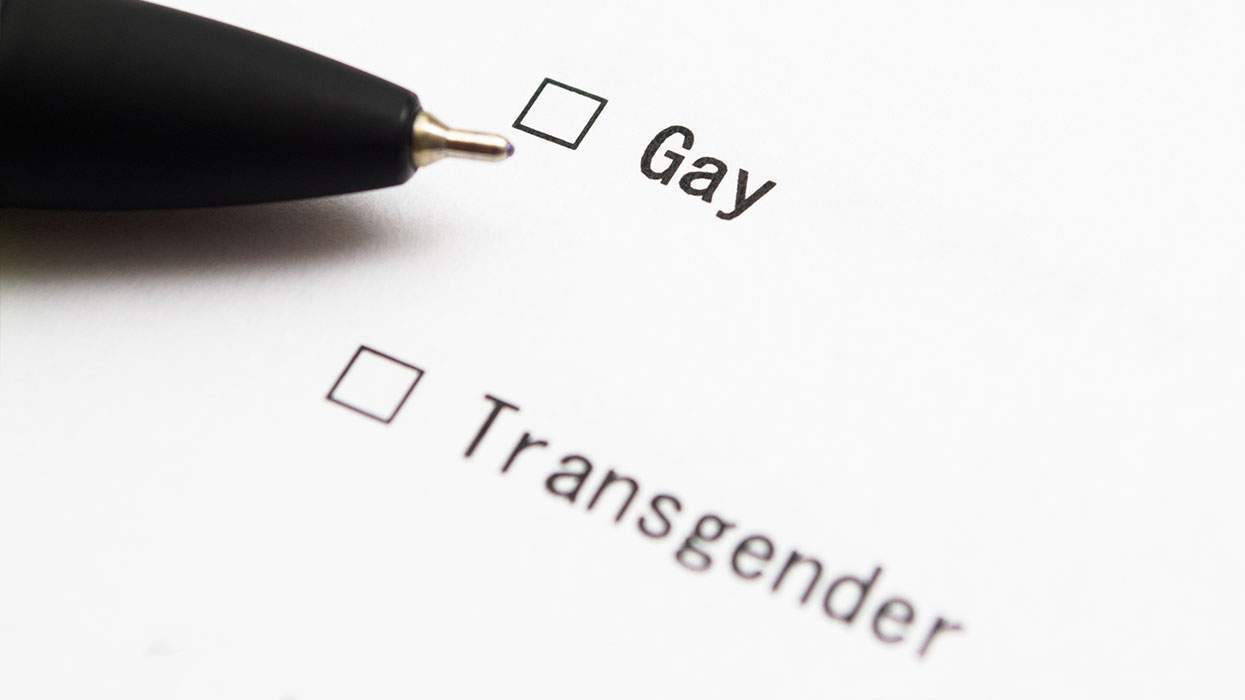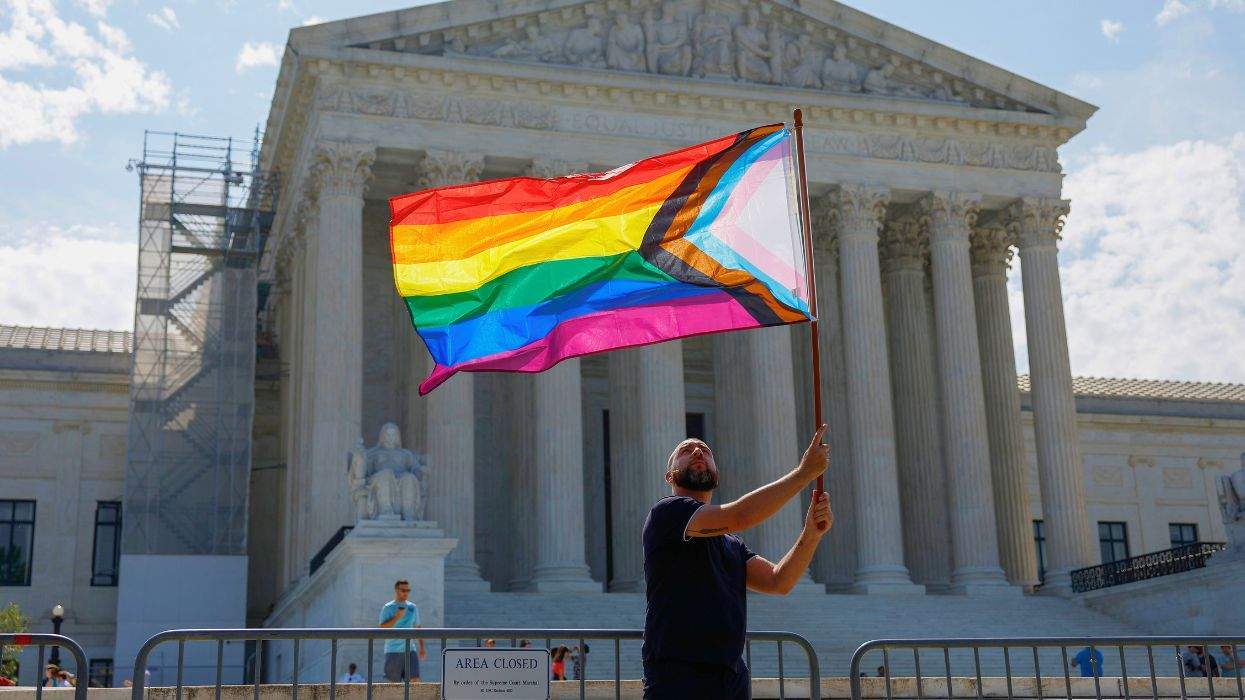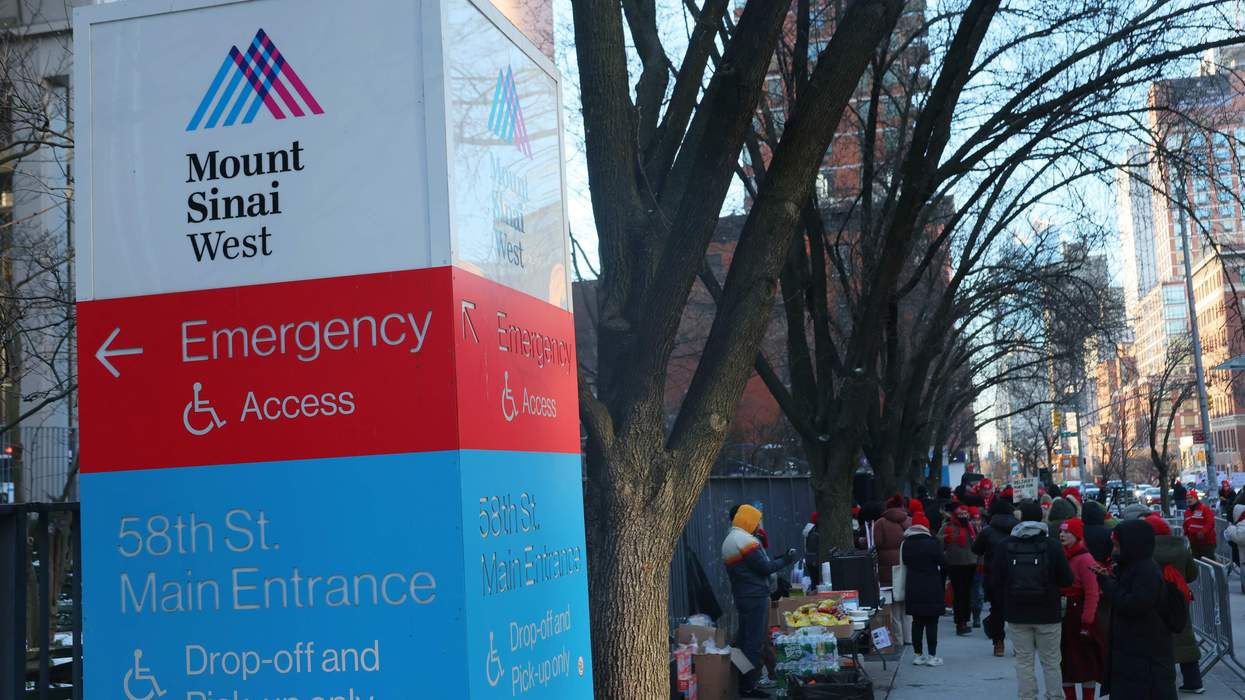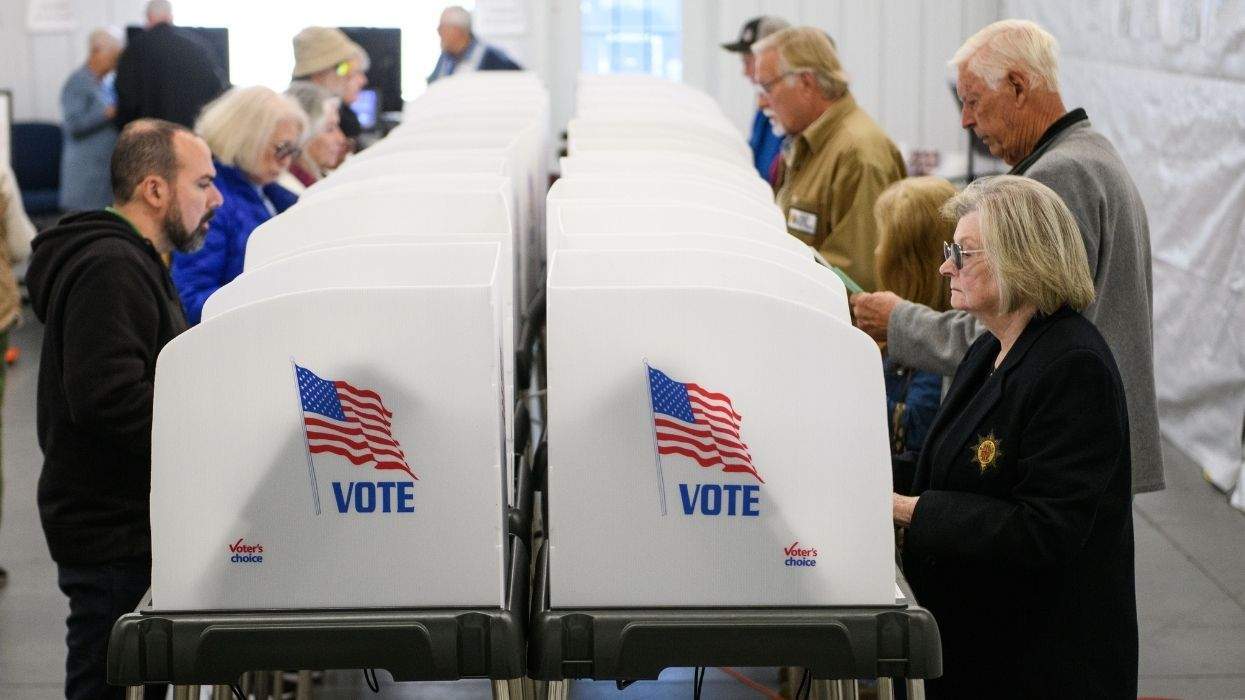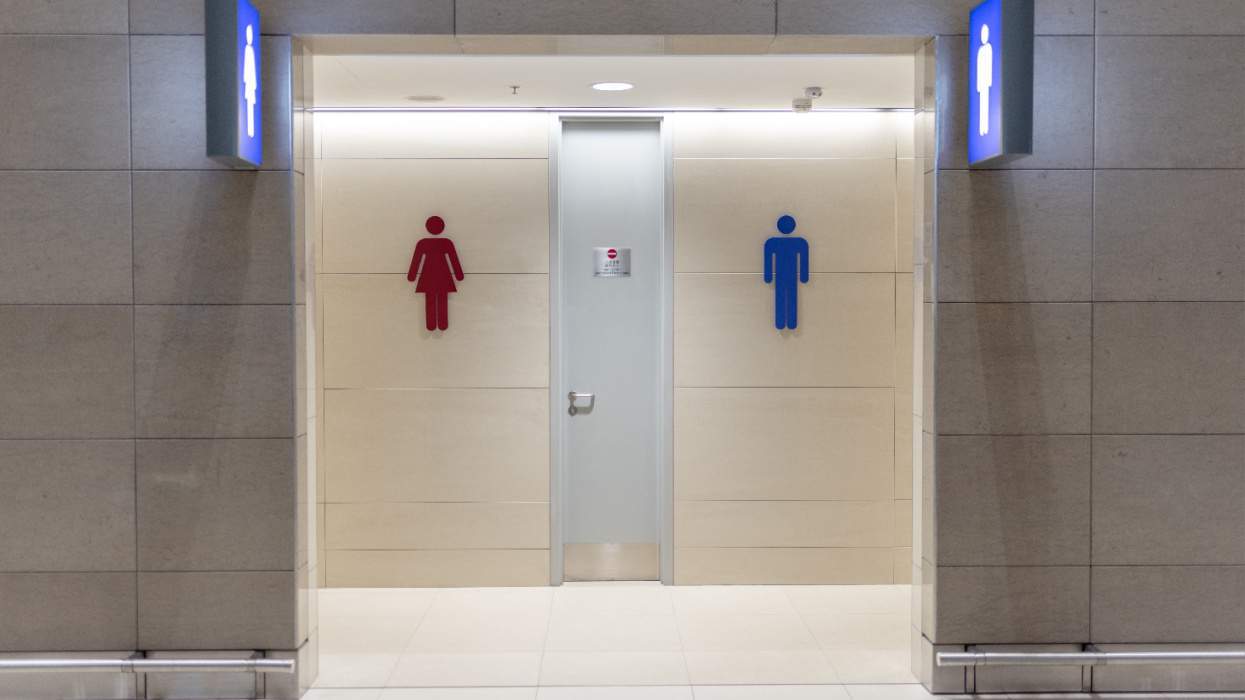I was 15 when my sister asked me to help her find the money to get an abortion. And while she never regretted her decision, it became a part of her life she was scared to discuss. How would people react? Would they hate her, judge her, shun her?
It was with my sister in mind that I started the "I Had an Abortion" project in late 2003 to encourage women to come out about their abortion experiences. The premise was simple: I'd create an awareness campaign, including T-shirts, a documentary film called I Had An Abortion, and eventually this book, to put faces on what has been reduced to a divisive "wedge issue" -- similar to gay marriage. Within a few months hundreds of woman sent me their stories.
Gay people know about being silenced -- and understand the power of visibility and honesty. But those aren't the only links between gay rights and abortion. Norma McCorvey (i.e., "Jane Roe" of Roe v. Wade) identified as a lesbian for many years, as do many of the 1.21 million women who seek abortions in the United States each year. According to a 1999 University of Washington study, bisexual and lesbian women are about as likely as straight women to have had intercourse with a man. But queer women have a significantly higher prevalence of pregnancy -- due to a variety of issues ranging from a higher chance of rape to lesbians being less likely to be on birth control pills.
Folk singer Ani DiFranco, who has written about abortion in her songs for years, wore an "I Had an Abortion" T-shirt in a photo shoot for Inc. magazine. The dozens of outraged letters sent to the magazine proved that my sister's fears were true -- many people, even those who call themselves pro-choice, harbor deep feelings about a woman who's had an abortion. Ani DiFranco's abortion story was excerpted in the October 7 issue of The Advocate.
What follows are the stories of three other women, Dawn Lundy Martin, Jenny Egan, and Marion Banzhaf, which appear with stories by Gloria Steinem, Ani DiFranco, and Barbara Ehrenreich and others' in my book Abortion & Life, photographed by Tara Todras-Whitehill.
Dawn Lundy Martin, born April 8, 1968
I come from a family of secrets, a house of padlocked bedroom doors and virulent privacy. In my childhood bedroom I could smoke cigarettes and pot, make out with girls, and play my music as loud as I wanted -- all of it hidden by the pervasive drift of nag champa. No one in my family ever talked about sex, sexuality, or any topic fluttering about the edges of what my mother might call "decency." There were other secrets too: My father's rather comprehensive drinking and the accompanying violence; my brother's depression; and the several men who circled around the prepubescent me like would-be coyotes after the hunt. Although my parents, I suspect, sought in the manner of silence to create a home that would shield my brother and me from the dangers and dangerous pleasures of the world, we were mostly left to our own devices of discovery when it came to sex.
Perhaps, however, this is not the story I want to tell -- as there is not a singular story of my abortion. There are stories -- multiple -- that lead to that singular event. It could begin with the raced Other, the kid who attended all-white schools in an affluent suburb and never went on a date until senior year; he was black like me and from another high school. It could begin with sixth grade, when girls and boys started making out at school dances and I stood on the raced boundaries of sexual exploration. We all somehow knew that interracial friendships were OK but that interracial kissing would break the tenuous social contract of unspoken segregation.
It seems then that these stories might converge, that the story overarching those stories might be a tale of a girl who is locked outside of the sexual world and eager, too eager, to get inside, to indeed, be free of decency and discipline.
The summer of my junior year in college I got pregnant by a boy I met at a bar. We had a short love affair, and one night we fucked on a deserted hillside. It started to rain. Hard. Something about the rain and the wet ground in summer and a boy's nylon body felt magical like everything in the universe lining up just right. It was a week before my period was to come, but I wasn't really keeping track. We did not use a condom. I was not on the pill. I, too, was a secret keeper, and obtaining birth control pills meant crossing into the terrain of utterance. It meant saying to a stranger, I am having sex. Most of the sex I had had during these first two years of sexual activity was unprotected. Until the moment on the hill, I had been extraordinarily lucky.
That year, 1988, I was one of 1.4 million American women to have an abortion. Mine was relatively devoid of physical and emotional trauma related to the abortion itself. My doctor, an African-American man who attended Howard University College of Medicine, was gentle and kind, and referred, like the other medical staff, to my abortion as "the procedure" and to my situation as "the pregnancy." I was grateful for this manner of speech in which the objective article was placed before the noun. It reminds me now of the way one of my poetry mentors says "the poem" when talking about her own work, as if the poem just appeared. No one's at fault here, my medical team seemed to imply. The pregnancy happened. The procedure will happen. It will be as if none of it ever happened. And for the most part, this was true.
I walk into the hospital attended by two friends and enter a waiting room of young women who look sad, most of whom are alone. I am almost 13 weeks' pregnant, so in preparation for the Dilation and Evacuation, my gynecologist has helped the cervix to open slightly by inserting a number of thin seaweed rods a couple of days prior. I am in the surgical room. I am given intravenous Valium. It seems like seconds later that they are shaking me alert. It is over. In the aftermath there is only a little blood -- like a bad period, the doctors were fond of saying -- and a cramp or two. The body had been invaded, and it is now its own again. No moral or visceral sense of a "baby," only a vague and muted sense of what might have been, an alternate possibility, ended.
I tuck this experience away in the cavern of silences I am used to. I do not tell my mother. Perhaps this is why when my friends drive me to my parents' house; I go quietly upstairs, crawl into my mother's bed, and fall melancholically asleep.
Sometimes loneliness is a girl who cannot say "This has happened to me," who has no one to witness what it means to be alive. Although to this day I have not told my mother about my abortion, I have worked to dismember the walls in the cavern of secrets. When I came out to myself as queer, I came out to my mother too. When for years she denied my orientation, I pressed her to recognize it. "This is my life," I told her. "I need you to see it."
Jenny Egan, born September 5, 1980
I'm one of five children in a Mormon family. My father is a marine, Republican, Mormon lawyer. I was raised in a church where abortion was a horror and something that was not acceptable. I was raised in Tangent, Ore., population 933. I was labeled a slut at a young age; I think a lot of assertive girls are. I was always a brassy teen, not a tomboy per se but what I've come to see as a pretty average mix of hyperfemme and soft-butch adolescent awkwardness. But it was the mid '90s, so I gravitated to wearing oversize suit jackets, Doc Martens, and huge JNCO jeans. Thus attired, it wasn't hard for me to quickly go from being a "slut" to "dyke" in the popular vernacular of hallway insults or friendly ribbing.
Tellingly enough, that label chaffed me. Despite having a lot of gay friends (and some serious girl-crushes), when I got called a muff diver or alterna-dyke, I would flip out. To cut the rumors short, and because I had been already been labeled a slut, I sought out sexual attention from boys to prove just how heterosexual I really was. My junior-year boyfriend was adept at pushing those buttons. He would call me a lesbian, ask if I fantasized about making out with a female friend, or accuse me of hating dick. And there's really only one tried and true method of proving you don't hate dick. So he would reap the benefits when I was forced to demonstrate my straightness through action. My sexual behavior didn't come from a place of desire but from a muted identity panic. I really felt like being gay meant giving up my femininity or womanhood; it made me something other, and I was desperately afraid of that. So as outspoken as I was in my demeanor, I made myself compliant when it came to boys and sex, in order to maintain some "female" quality that was being demanded of me.
In my mixed-up adolescent rubric of ethics, I figured my having sex (and by extension, risking getting pregnant) would anger my parents, but being gay was probably worse. I misjudged my parents' reactions, though, as over the years it wasn't the pregnancy or my queerness that created the most long-lasting tension. It was my abortion.
In mainstream American culture gayness is spoken about. It's impossible to watch a half hour of network TV without getting at least hearing one gay reference. But watch a whole season of Must See TV and I assure you no one will say "abortion" and no one will have one. So although coming out had its bumpy moments, it was fine in no time. But when my parents found out I'd had an abortion, they were horrified. It was almost impossible to say the words again, and it remained the dirty secret between us, never discussed, never spoken of, never said out loud. It's not just silence from my Mormon parents. There's no quicker way for me to shut down a conversation among friends then to reference when I was pregnant at 16. In a crowd of queers, referencing my abortion is like a record scratching to a halt. I would like it to be a part of the conversation, something I can voice without shame or embarrassment. The fact that abortion isn't discussed in polite conversation makes it much like that other little wordless secret I was carrying around in high school, trying to keep anyone else from saying out loud.
Marion Banzhaf, born September 12, 1953
I was raised in Central Florida in a religious home. I sensed that I was a lesbian at a pretty young age, though I didn't know consciously what that even was. If I were to describe my early sexual experiences, I think I wanted to, basically, fuck the dyke part right out of me. I lost my virginity as a camp counselor after graduating high school and then headed off to the University of Florida in Gainesville. At college, immediately I had a new boyfriend, Kevin, and went to get on the pill, but we had already had sex. I started getting really sick in the mornings. It was the beginning of the '70s, and all of us girls in the dorm had begun talking -- you know, the blind leading the blind -- about sex and our bodies. And somebody said, "Oh, wait, morning sickness is a symptom of pregnancy. You must be pregnant because you didn't get your period, right?" I was.
I was desperate and about 10 weeks' pregnant when the editor of the student paper broke the law and printed abortion-referral information. Abortion was legal then in Hawaii, New York, and California. A group of ministers called Clergy Consultation Service had set up referral networks around the country. The editor was arrested, but I got the newspaper and I immediately called the number. This was heaven-sent. I learned all about what I had to do. I would have to go to New York, and I would need, besides the plane fare to get to New York, $150 for the abortion.
Sitting around with my girlfriends in my dorm room, trying to figure out how to get the money, I came up with the idea that we should solicit donations for my abortion fund. We devised a petition to legalize abortion too. We went out to the quad on a sunny October day. I would approach people and say, "I'm pregnant, I don't want to be. I've got to get to New York to get an abortion. Will you contribute, and will you sign this petition?" We raised about $350 within a couple of days.
I flew to New York by myself. When I got to the clinic there were probably about 300 women there. It's like everybody east of the Mississippi came to New York for their abortions. Afterwards, I was thrilled. I was so relieved. It didn't hurt. Even the cramp didn't matter. I was so happy to see that blood. I felt like my life was beginning over again. And I didn't really have time to look around. But I was skipping down the street and I was singing -- and nobody thought it was odd, because it was New York. I remember I saw a little baby in a carriage and a mom, and I thought, Oh, I'm so glad that's not me. It was just overwhelming relief that I could go on with my life again.
Thinking back on it, I developed a different sense of confidence after that abortion experience. I felt like I had control over what I was going to do with the rest of my life. A couple of years after that abortion, one of my sorority sisters announced she was a lesbian, so I finally learned the name for desiring women! She got kicked out of the sorority, and I quit protesting her eviction. She immediately moved, though, so I still didn't know how to find other lesbians.
I dropped out of college when I ran out of money, and I moved to Tallahassee, Fla. The first week I was there I got a job at the Feminist Women's Health Center. I was introduced to the feminist health movement's critique of the Western capitalist, sexist, and racist medical establishment. It crystallized my earlier abortion experience, and helped me to understand the power of collective organizing to be able to achieve true control over our bodies.
The Federation of FWHCs were part of the left wing of the women's health movement that believed in political action as well as providing services. We not only took off our pants in front of groups of women and demonstrated how to do vaginal self-examination with a speculum and a mirror, we also went to Planned Parenthood conferences and confronted them about their policies that were more concerned about sterilizing millions of the world's women than working for their self-determination. We organized demonstrations against the Ku Klux Klan, and we joined the Iranian students in protesting the shah of Iran and the United States' role back in 1953 in overthrowing their democratically elected government . We hosted the Zimbabwe African National Union's Women's League when they were touring the country raising money for their liberation struggle (Zimbabwe was still Rhodesia then). Being part of the FWHCs also introduced me to other lesbians. Hallelujah!
When AIDS began affecting the gay community, I knew from my feminist health movement days that women were also going to be affected by the disease, and that the medical establishment would deal with women badly. I became active in the New York chapter of ACT UP and then became the first executive director of the New Jersey Women and AIDS Network. ACT UP built on the strength of the feminist health movement, which had wrested control from the doctor and worked to put the control in women's hands. The AIDS activist movement played a huge role in increasing the concept of patient and consumer advocacy in the medical and research fields.
The connection between control of one's sexuality and one's reproduction is so obvious to me, it's no wonder that so many lesbians have been working for reproductive justice for years.

